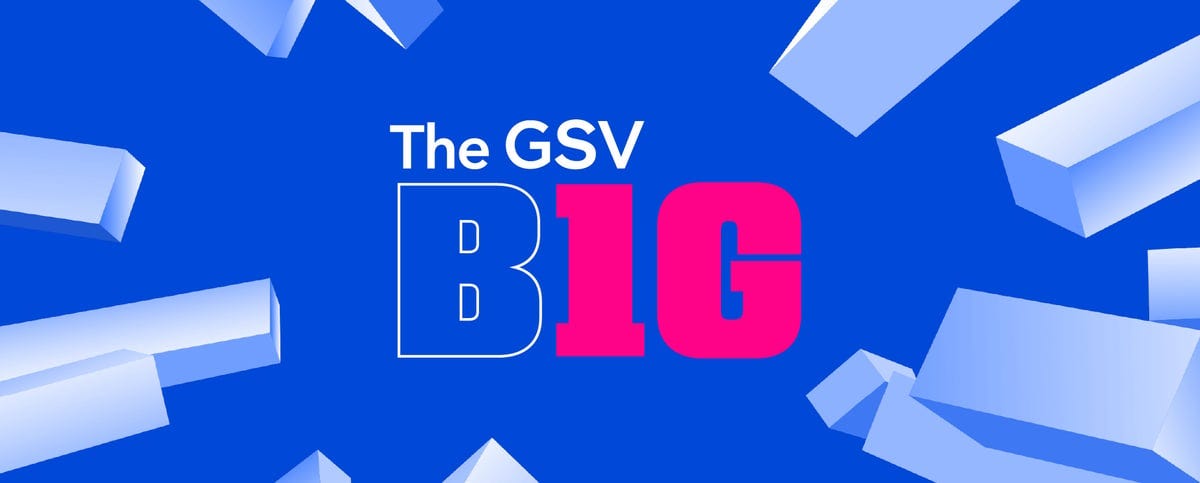The GSV Big 10: A Phoenix Rising From the Ashes?
Here's your weekly coverage corner for the top 10 stories, insights, and major plays in learning and skilling.
#1 Can ChatGPT Write This Column?
People are wowed that ChatGPT can pass MBA exams at Wharton and law school courses at the University of Minnesota, but it would be very unimpressive if it couldn’t. Passing an exam reflects “knowing” the material…but would you hire your banker or lawyer only because they past their test?
#2 Partnership between ASU, YouTube, Crash Course expands to offer courses for college credit
YouTube is already the world’s largest learning platform. Now, it’s partnering with the United States’ largest (and most innovative) university to offer an affordable and accessible onramp to earning college credits…at less than 90% lower than the average course cost of a private four-year university.
#3 Mega Universities
UA M&A? The University of Arkansas is in conversations to purchase the University of Phoenix, the most important early innovator in online education. At one point, the University of Phoenix had 500k students, a $15 billion market cap, and created tens of thousands of opportunities for working adults. A variety of factors (many self-inflicted) brought challenges, but the school has 170 programs, 88K students, and perhaps a new owner.
#4 Senate gives final passage to school choice scholarships, teacher raises
Universal school choice is coming to Utah. The Utah Fits All Scholarship will provide $42 million for education expenses like curriculum, textbooks, education, software, tutoring services, micro-school teacher salaries and private school tuition, while allocating $200 million for educator salary raises…two investments that will provide a high ROI and ROE.
#5 Scores of Stanford students used ChatGPT on final exams, survey suggests
More from the Crazy Farm? (oops, that’s right, Stanford has banned the word “crazy”). 17% of Stanford students used ChatGPT to assist with assignments and exams this fall. Nearly 60% of students used ChatGPT as a study buddy… 10x as much as the students who used ChatGPT solely to cheat.
#6 Is Africa the Next Big Thing in International Admissions?
Demographics are destiny… and Africa has 750 million people under 25. While less than 10% of college-age students in sub-Saharan Africa are enrolled in post-secondary education, secondary school completion rates have nearly doubled over the past twenty years. We’re betting we’ll see a similar surge in post-secondary education over the next twenty years.
#7 Moonbug Revisited
Conventional wisdom is that content is a commodity. Here’s a counter-argument. This thread revisits the story of Moonbug, René Rechtman’s holding company of YouTube kids entertainment. The business model was simple: buy homemade breakout productions, upgrade the content, and pursue brand extensions. The results? Moonbug shows had 9.8 billion views in December alone…and a Blackstone acquisition for $3 billion.
#8 OPINION: What do early child care workers need? Better pay, more respect and a few good men
Only 1.2% of early childhood and kindergarten teachers are men. But recruiting more men into the profession won’t just help men. Wages tend to increase when men enter jobs dominated by women, while 97% of educators think it's important for young children to have positive male role models.
#9 College enrollment gaps: How academic preparation influences opportunity
Ten years ago, If you were from a bottom quartile family, you had an 8% chance of graduating from any college…that’s risen to 14%. Nobody’s celebrating this, but that’s progress.
#10 Chart of the Day…Or Century?
The data speaks for itself: college textbooks and tuition have both grown at 2x the rate of overall inflation. As Prof G has said, higher ed has become a luxury good: exclusive, scarce, and expensive. There’s 4,500 universities in the United States; if they were all stocks, you’d short 90% of them. The core elite will probably be unaffected, but they aren’t where the future’s going to be created. Instead, it’s high-quality, low-cost models where you combine degrees and credentials to get the knowledge required to be effective in the modern world.




